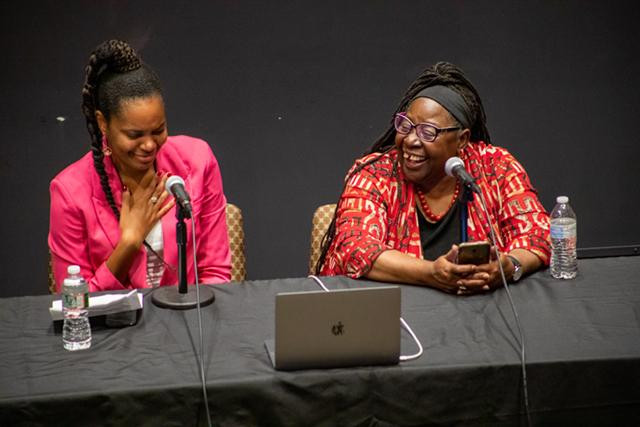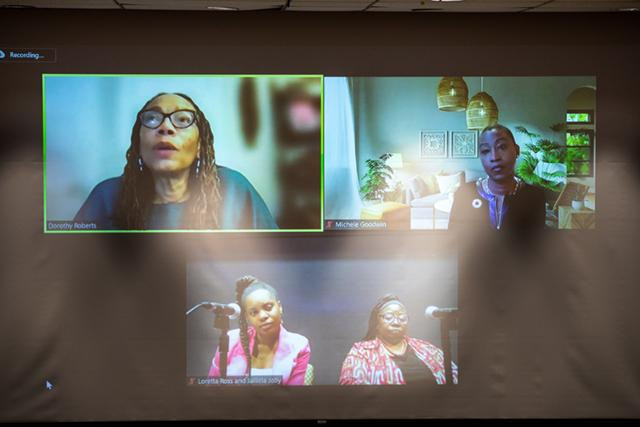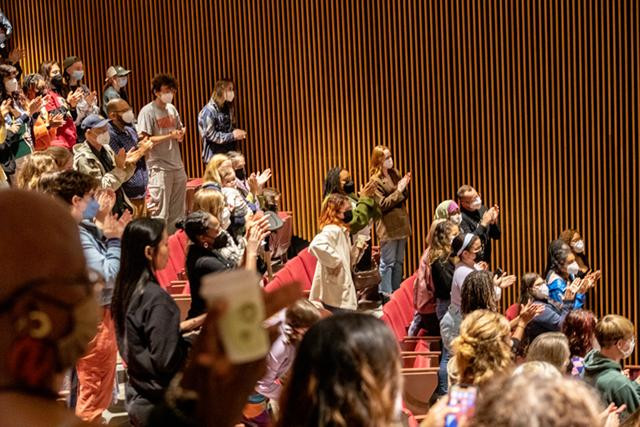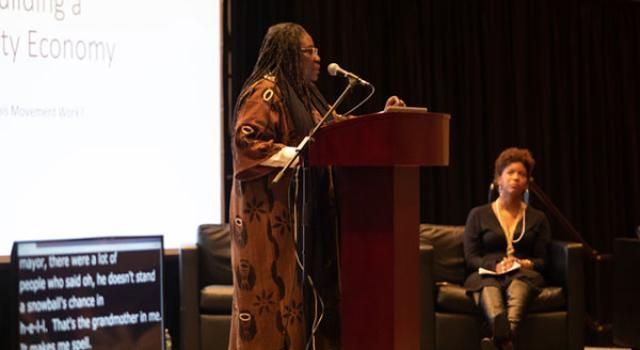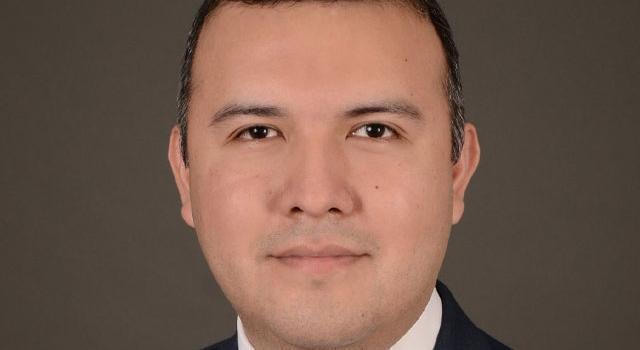23rd Annual Eqbal Ahmad Lecture Tackles Reproductive-Justice Issues with Black Feminist Scholar-Activists
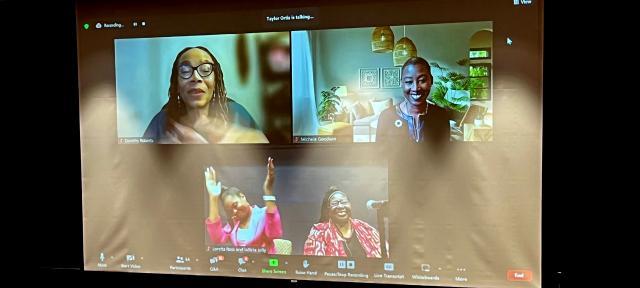
On October 13, the 23rd annual Eqbal Ahmad Lecture, “The State We Are In: Building an Intersectional Movement for Reproductive Justice,” took place at Hampshire College. In the spirit of the series, guests took on a timely topic with wide-ranging cultural implications: this time, abortion rights, especially in the context of women of color.
The lecture was offered in a hybrid format for those on campus and beyond. In Franklin Patterson Hall, some 200 attendees participated as 65 listened in over Zoom. The event was free and open to the public.
Black feminist scholar-activists Dorothy Roberts and Michele Goodwin, who were remote, addressed questions from the Black feminist reproductive-justice educator Loretta J. Ross and Amherst College Professor Jallicia Jolly, who teaches Black studies and American studies and moderated from the hall. Their conversation was about not only the immediate subject at hand—including the recent Dobbs decision overturning Roe v. Wade—but also many related racial, economic, and social issues.
The presenters began by discussing the history of Black women’s resistance, going back to Sojourner Truth, Harriet Jacobs, and Harriet Tubman, as well as longstanding issues of white supremacy and patriarchal control of women’s bodies, and made a special note to remember those legacies and bring them to the forefront of their activism.
“History is important,” Ross said, “because it gives us lessons on how we arrived here.”
Goodwin and Roberts explained the myriad ways the U.S. Supreme Court has not protected women and people of color and has been actively complicit in their oppression. “People turn to our institutions for relief,” Goodwin said, “even though they’ve failed us time and again.”
Roberts described “the pornography of Black pain” through recollections of the denial of pain medication for Black people, the glee of white people attending public lynchings, the forced sterilizations of marginalized people, the justifications for slavery, and the 1927 eugenics law that validated the Holocaust. “We pretend this never happened,” she said, “erasing the narrative.”
Concerned about the Supreme Court’s likely move to eviscerate voting rights and affirmative action after Dobbs, the speakers impressed on the attendees the importance of dismantling oppressive institutions and building supportive, humane replacements.
Ross, who teaches about call-out culture and white supremacy at Smith College, taught at Hampshire during the 2017–18 academic year and was the College’s Commencement speaker this spring. The day before the event, Ross received a MacArthur Fellowship “Genius Grant,” in recognition of her contribution as “a key architect of the reproductive justice movement,” connecting reproductive rights within the larger framework of human rights.
Michele Goodwin is a professor of law at the University of California, Irvine, and director of the UCI Law’s Center for Biotechnology and Global Health Policy.
The work of Dorothy Roberts, a sociologist and professor of law and of civil rights at the University of Pennsylvania, focuses on urgent social-justice issues in policing, family regulation, science, medicine, and bioethics.
The Eqbal Ahmad Lecture Series is an annual event in honor of the scholarship, teaching, and activism of former Hampshire faculty member Eqbal Ahmad.
Additional support came from the Department of Politics, Mount Holyoke College; the Department of Women, Gender, and Sexuality Studies, University of Massachusetts Amherst; the Program for the Study of Women and Gender, Smith, College; Sexuality, Women’s, and Gender Studies, American Studies, and the Corliss Lamont Lectureship for a Peaceful World, Amherst College; and Collective Power for Reproductive Justice.
